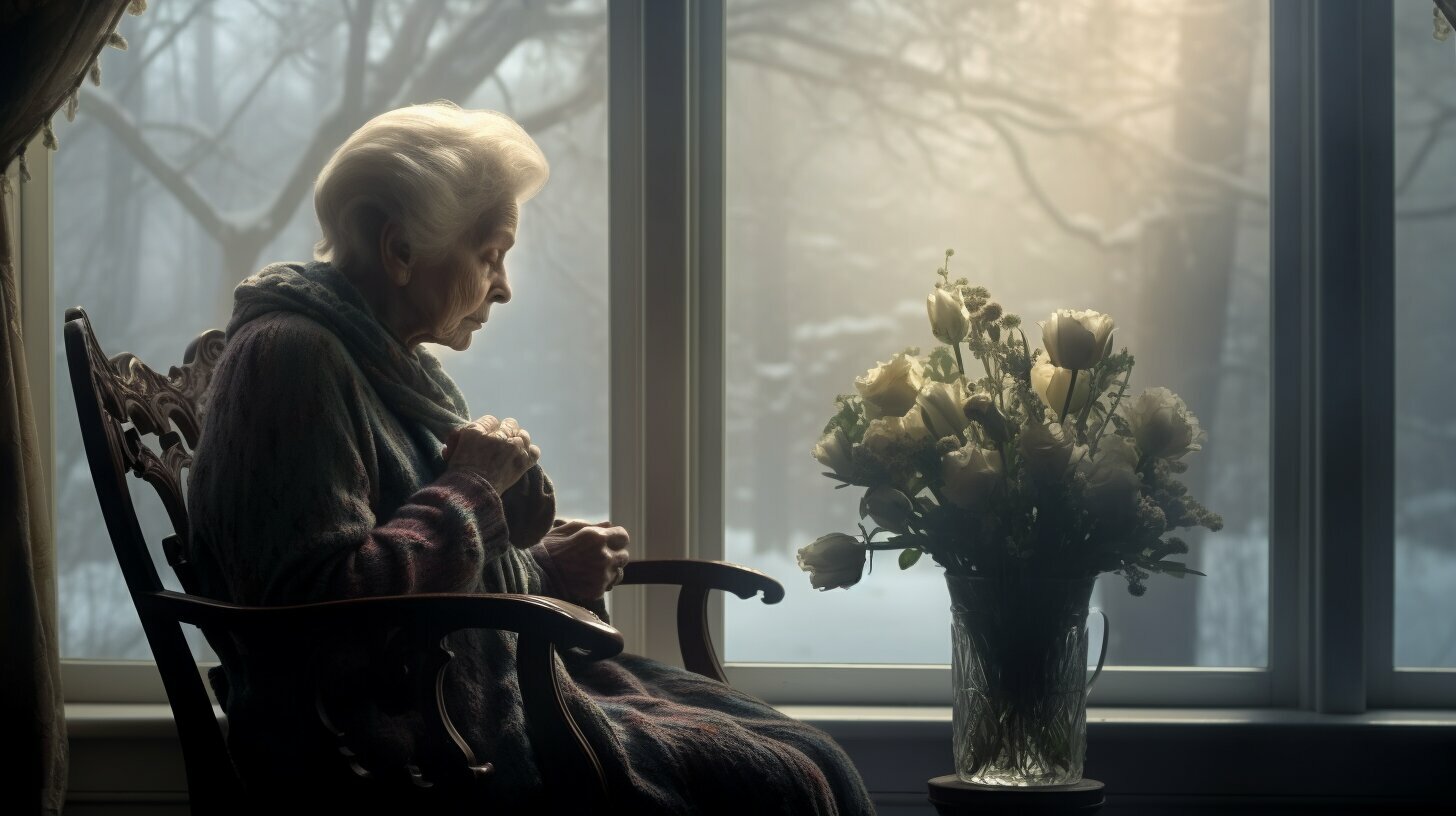Unveiling the Mystery: Why Do Old People Cough So Much?
Coughing is a prevalent issue among older adults, and understanding the reasons behind it is essential to promote their respiratory health. As we age, our bodies undergo various changes that can affect the cough reflex and increase the frequency of coughing episodes. In this article, we will delve deeper into the mysteries of why old people cough so much and explore the causes, management, and types of coughs commonly observed in the elderly population.
Key Takeaways:
- Older adults often experience chronic coughing due to factors such as postnasal drip, sinus infection, smoking, acid reflux, asthma, and lung infections.
- The most common type of cough in aging adults is a wet, productive cough that produces thick mucus, while dry coughs are less likely to be related to infection and can be managed at home.
- Paroxysmal coughs, which are sudden, spasmodic coughs lasting less than 10 minutes, are often triggered by allergies or physical causes.
- Night coughs in older people can be indicative of more serious conditions like asthma or lung cancer.
- The perception of urge-to-cough may be decreased in elderly individuals due to factors such as neurogenic diseases, aspiration, and reductions in motivation or cognitive function.
Causes of Excessive Coughing in Older Adults
Excessive coughing in older adults can be attributed to various factors, ranging from respiratory conditions to lifestyle choices. As we age, our respiratory system undergoes changes that can make us more susceptible to chronic coughing. One common cause is postnasal drip, where mucus from the nose drips down the throat, triggering coughing. Sinus infections can also lead to excessive coughing in seniors, as the body tries to clear out the infected mucus.
Smoking, even if it occurred earlier in life, can have lasting effects on lung health. Older adults who have smoked are more likely to develop chronic coughs due to damage to the airways. Additionally, acid reflux can cause a chronic cough in seniors. When stomach acid flows back into the esophagus, it can irritate the throat and trigger coughing.
In some cases, chronic coughs may be a symptom of underlying respiratory conditions such as asthma or lung infections. Seniors with asthma may experience coughing as a result of inflammation and constriction of the airways. Lung infections, such as pneumonia, can also lead to persistent coughing.
It is important to note that not all coughs in older adults are related to infection. Dry coughs, for example, are less likely to be caused by infection and can often be managed at home with remedies such as lozenges or cough suppressants. However, if coughing persists or is accompanied by other concerning symptoms, it is advisable to consult a healthcare professional for an accurate diagnosis and appropriate treatment.
| Common Causes of Excessive Coughing in Older Adults: |
|---|
| Postnasal drip |
| Sinus infections |
| Smoking |
| Acid reflux |
| Asthma |
| Lung infections |
In conclusion, excessive coughing in older adults can have various causes, including postnasal drip, sinus infections, smoking, acid reflux, asthma, and lung infections. Understanding the underlying factors contributing to chronic coughs can help in managing and treating the condition effectively.
Managing and Treating Coughing in the Elderly
Managing and treating coughing in the elderly requires a combination of medical interventions and lifestyle adjustments. Remedies for coughing in the elderly can help alleviate symptoms and improve overall quality of life. Geriatric cough treatment focuses on addressing the underlying causes of coughing in older adults, while also providing relief from discomfort.
For persistent cough in the older population, it is important to consult with a healthcare professional to determine the specific cause. A thorough evaluation can help identify potential triggers such as postnasal drip, sinus infections, smoking, acid reflux, asthma, or lung infections. Once the cause is determined, targeted treatments can be recommended for effective management.
In addition to medical interventions, lifestyle adjustments can play a significant role in managing coughing in the elderly. These may include avoiding exposure to irritants, maintaining good hydration, and using humidifiers to keep the air moist. It is also important to follow any prescribed medication regimen and practice good respiratory hygiene, such as covering the mouth and nose when coughing or sneezing.
| Tips for Managing Coughing in the Elderly: |
|---|
| 1. Stay hydrated by drinking plenty of fluids, as this helps thin mucus and soothes the airways. |
| 2. Use a humidifier or vaporizer to add moisture to the air, reducing irritation in the respiratory tract. |
| 3. Avoid exposure to irritants such as smoke, dust, and strong odors. |
| 4. Follow the prescribed medication regimen, including inhalers or cough suppressants, as directed by the healthcare provider. |
| 5. Practice good respiratory hygiene, such as covering the mouth and nose when coughing or sneezing. |
In conclusion, managing and treating coughing in the elderly requires a comprehensive approach that addresses the underlying causes and incorporates lifestyle adjustments. By working closely with healthcare professionals and making necessary lifestyle changes, seniors can find relief from persistent coughing, improve their respiratory health, and enhance their overall well-being.
Understanding Different Types of Coughs in the Aging Population
Coughs in the aging population can manifest in various ways, indicating different underlying causes and potential health concerns. It is important to recognize and understand these different types of coughs in order to provide appropriate management and treatment options for older adults.
1. Wet, Productive Cough
The most common type of cough in the elderly is a wet, productive cough that produces thick mucus. This type of cough is often associated with conditions such as postnasal drip, sinus infection, smoking, acid reflux, asthma, and lung infections. It is important to address the underlying cause of the cough and provide appropriate treatment to help alleviate symptoms and prevent complications.
2. Dry Cough
While less common, dry coughs in older adults are typically not related to infection. They can be caused by factors such as allergies, medications, or environmental irritants. These types of coughs can often be managed at home with over-the-counter cough suppressants and remedies, but it is still important to consult with a healthcare professional if the cough persists or worsens.
3. Paroxysmal Cough
Paroxysmal coughs are sudden, spasmodic coughs that usually last less than 10 minutes. They are often triggered by an allergy or physical cause and can be quite distressing for the individual. Identifying and avoiding triggers is essential in managing paroxysmal coughs, and medical intervention may be necessary in severe cases.
4. Night Cough
Night coughs are common in older people and can indicate more serious conditions such as asthma or lung cancer. If a persistent cough occurs primarily at night or disrupts sleep, it is important to seek medical attention for further evaluation and appropriate treatment.
While these are some of the common types of coughs seen in the aging population, it is crucial to remember that each individual is unique, and the underlying cause of their cough may vary. If you or a loved one is experiencing chronic or severe coughing, it is recommended to consult with a healthcare professional for a proper diagnosis and personalized treatment plan.
The Aging Process and its Impact on the Cough Reflex
The aging process can influence the cough reflex and the perception of urge-to-cough, leading to unique challenges in managing coughing in older adults. As we age, the body undergoes natural changes that can affect the respiratory system and increase the likelihood of coughing. Older individuals may experience a weakened immune system, reduced lung function, and decreased elasticity in the airways, making them more susceptible to respiratory infections and coughing.
In addition to these physical changes, the perception of urge-to-cough can be altered in elderly individuals. Various factors such as neurogenic diseases, aspiration, and declines in motivation or cognitive function can contribute to a decreased awareness of the need to cough. This can result in delayed or ineffective coughing, leading to a buildup of mucus and potential respiratory complications.
It is important for healthcare professionals to understand these age-related changes in order to effectively manage and treat coughing in older adults. Identifying the underlying causes of coughing, such as postnasal drip, sinus infection, smoking, acid reflux, asthma, and lung infections, is crucial for developing targeted treatment plans.
| Type of Cough | Description |
|---|---|
| Wet, productive cough | A common type of cough in the aging population, characterized by the production of thick mucus. |
| Dry cough | Less likely to be related to infection and can be managed at home. |
| Paroxysmal cough | Sudden, spasmodic coughs that usually last less than 10 minutes and are often triggered by an allergy or physical cause. |
| Night cough | Common in older people and may indicate more serious conditions like asthma or lung cancer. |
By understanding the different types of coughs in the aging population, healthcare professionals can tailor their treatment approaches accordingly. Effective management and treatment options for coughing in older adults may include medication, lifestyle modifications, respiratory therapies, and addressing underlying health conditions.
Conclusion
The aging process can impact the cough reflex and the perception of urge-to-cough in older adults. Older individuals may experience age-related changes in the respiratory system, making them more susceptible to coughing and respiratory infections. Healthcare professionals should consider these factors when managing and treating coughing in older adults, ensuring targeted and effective interventions. Further research is still needed to fully understand the effects of aging on the cough reflex and urge-to-cough, providing more insights into managing this common issue among the elderly population.
In Conclusion
By unraveling the mysteries behind coughing in the elderly, we can take proactive steps to enhance their well-being and minimize coughing episodes.
Old people cough more frequently due to various factors such as postnasal drip, sinus infection, smoking, acid reflux, asthma, and lung infections. Chronic coughs are common among aging adults, and the most common type of cough in this population is a wet, productive cough that produces thick mucus. Dry coughs are less likely to be related to infection and can be managed at home.
Paroxysmal coughs are sudden, spasmodic coughs that usually last less than 10 minutes and are often triggered by an allergy or physical cause. Night coughs are common in older people and can indicate more serious conditions like asthma or lung cancer. The perception of urge-to-cough can be decreased in elderly individuals, potentially due to factors such as neurogenic diseases, aspiration, and reductions in motivation or cognitive function.
Further research is needed to understand the effect of aging on the cough reflex and urge-to-cough. By gaining a deeper understanding of the causes and types of coughing in the aging population, healthcare professionals can develop more targeted and effective treatments. This knowledge can also empower seniors and their caregivers to take appropriate measures to manage and alleviate coughing symptoms, improving their overall quality of life.
FAQ
Why do old people cough so much?
Old people cough more frequently due to various factors such as postnasal drip, sinus infection, smoking, acid reflux, asthma, and lung infections.
What are the causes of excessive coughing in older adults?
Chronic coughs are common among aging adults, and the most common type of cough in this population is a wet, productive cough that produces thick mucus. Dry coughs are less likely to be related to infection and can be managed at home. Paroxysmal coughs are sudden, spasmodic coughs that usually last less than 10 minutes and are often triggered by an allergy or physical cause. Night coughs are common in older people and can indicate more serious conditions like asthma or lung cancer.
How can coughing in the elderly be managed and treated?
Remedies for coughing in the elderly include over-the-counter cough medicines, staying hydrated, using a humidifier, avoiding irritants like smoke, and addressing underlying causes such as allergies or acid reflux. Persistent coughs in the older population may require medical intervention and should be discussed with a healthcare provider.
What are the different types of coughs in the aging population?
The different types of coughs in the aging population include chronic coughs that produce thick mucus, paroxysmal coughs that are sudden and spasmodic, and night coughs that may indicate more serious conditions. Each type of cough may have different underlying causes and may require different approaches in management and treatment.
How does the aging process impact the cough reflex?
The aging process can affect the cough reflex in elderly individuals. Factors such as neurogenic diseases, aspiration, and reductions in motivation or cognitive function can decrease the perception of urge-to-cough in older adults. Further research is needed to fully understand the effect of aging on the cough reflex and urge-to-cough.
- Discovering Why Do Women Wear Lipstick: A Deeper Look - 19/12/2023
- Why Do Golfers Only Wear One Glove? - 16/12/2023
- Why Don’t Hobbits Wear Shoes? - 14/12/2023
Hi, I’m Rhiannon, the lead author behind The News Wire. As a passionate journalist, I strive to bring you the latest news and updates from all over the world. With a keen eye for detail and a dedication to unbiased reporting, I aim to deliver well-researched and informative articles that keep you informed and engaged. From breaking news to in-depth analyses, I cover a wide range of topics with the aim of keeping you in the loop. Join me on The News Wire as we explore the dynamic and ever-changing landscapes of global events, uncovering the stories that matter most.






